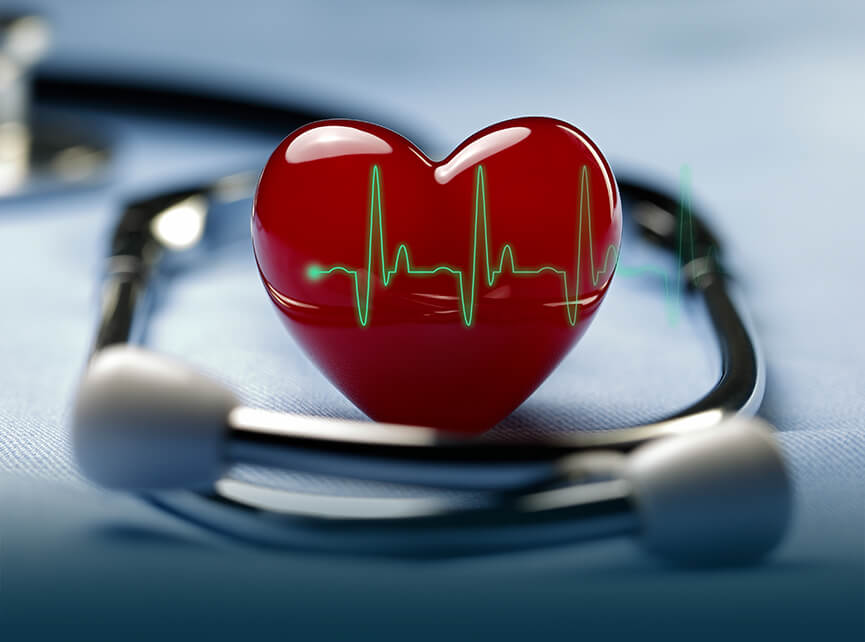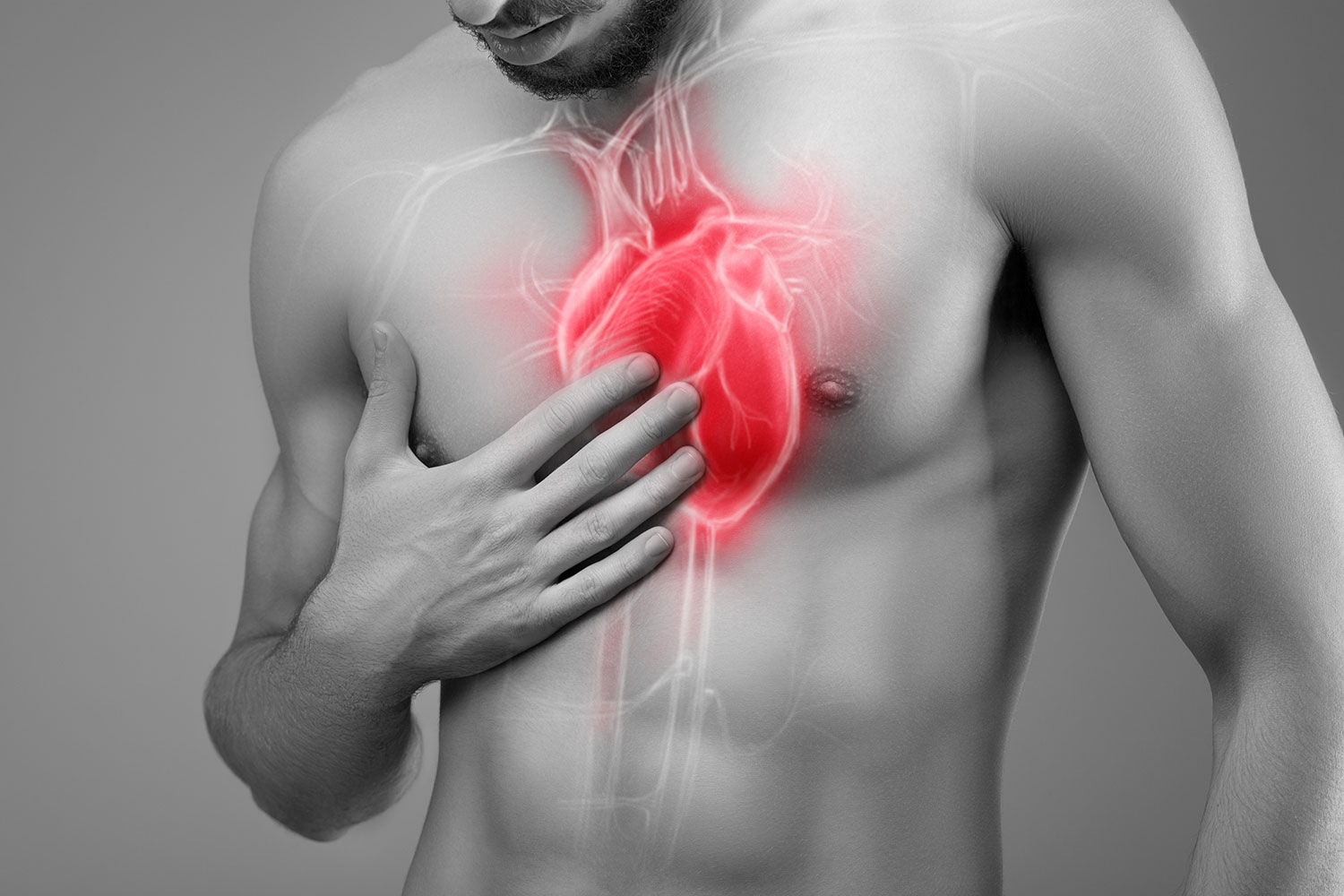How to prepare for a visit to the Cardiologist near me
Comprehending the Relevance of Cardiology in Modern Healthcare Services
Cardiology plays a vital function in contemporary medical care, specifically as heart problem proceeds to be the leading source of death worldwide. Breakthroughs in diagnostics and therapy have actually changed person treatment, making it possible for earlier treatments and enhanced results. The change towards precautionary cardiology empowers individuals to handle their wellness proactively. As innovation continues to develop, the integration of cutting-edge remedies might even more redefine cardiology's effect on public health, motivating a more detailed assessment of emerging fads and their effects.
The Occurrence of Heart Disease and Its Effect On Public Wellness
Although heart illness remains the leading reason of fatality worldwide, its influence prolongs far past private patients to influence public health and wellness systems and economies. The high occurrence of cardiovascular disease positions a substantial strain on medical care resources, demanding enhanced financing for therapy, prevention, and rehab programs. Public health initiatives must resolve danger factors such as weight problems, smoking, and sedentary way of lives, which contribute significantly to the rising occurrence of heart conditions.Moreover, the economic burden related to heart condition is immense, including not just straight medical expenses yet also indirect expenditures associated with shed efficiency and premature mortality. Communities encounter difficulties in handling these costs, usually causing disparities in healthcare access and results. As the population ages and lifestyle-related threats remain to rise, the urgency for reliable cardiology interventions comes to be critical. Consequently, dealing with heart condition is not only a matter of private wellness yet also an important public wellness top priority.
Developments in Cardiac Diagnostics and Imaging Techniques
Recent innovations in heart diagnostics and imaging techniques have actually revolutionized the field of cardiology, enhancing the capability to keep track of and detect cardiovascular disease. Strategies such as heart MRI, CT angiography, and echocardiography have become increasingly sophisticated, giving detailed photos of heart frameworks and features. These modalities permit the very early identification of problems like coronary artery condition, heart failure, and valvular disorders.Moreover, developments in non-invasive diagnostics, such as wearable modern technology and remote tracking tools, have actually encouraged individuals and health care companies. These devices assist in real-time monitoring of heart rhythms and various other essential indicators, resulting in prompt treatments. Additionally, fabricated intelligence is being incorporated into imaging analysis, boosting accuracy and efficiency in medical diagnosis.
Advancements in Treatment Alternatives for Heart Conditions
Recent improvements in cardiology have brought about considerable advancements in therapy choices for heart disease. These include sophisticated medical techniques that improve step-by-step outcomes and emerging drugs that offer brand-new methods for therapy. As the field progresses, these innovations play an important duty in boosting client treatment and end results.
Advanced Surgical Techniques
Innovations in medical strategies have transformed the landscape of cardiology, using brand-new wish for patients with heart disease. Minimally invasive treatments, such as catheter-based treatments, have actually greatly decreased healing times and health center keeps. Techniques like robotic-assisted surgery improve precision, enabling specialists to browse intricate physiological frameworks with better precision. Furthermore, advancements in imaging technology help with real-time visualization during procedures, improving outcomes. Transcatheter aortic shutoff substitute (TAVR) exemplifies an advancement in treating aortic constriction, enabling shutoff substitute without open-heart surgical treatment. Furthermore, hybrid techniques that integrate surgical and catheter-based approaches give customized options for different cardiac concerns. These innovative medical techniques not only boost individual safety and security but additionally broaden treatment choices, highlighting the vital role of innovation in modern-day cardiology methods.
Emerging Medications and Treatments
As the landscape of cardiology proceeds to develop, emerging drugs and therapies play a pivotal duty in improving treatment choices for heart conditions. Innovations such as unique anticoagulants and advanced lipid-lowering representatives have changed the management of cardio illness, greatly minimizing client morbidity and death. Additionally, the growth of gene treatments and regenerative medicine uses promising opportunities for treating conditions formerly deemed incurable. Medical tests are continually exposing the efficacy of these therapies, pressing the boundaries of conventional therapies. The integration of digital health and wellness modern technologies facilitates individualized medication, permitting for tailored treatment plans based on genetic and way of life variables. Jointly, these advancements highlight the dynamic nature of cardiology, enhancing person results and redefining requirements of treatment in modern-day medical care.
The Role of Preventive Cardiology in Patient Care
Preventive cardiology plays a crucial function in individual treatment by concentrating on the recognition of danger aspects that add to cardiovascular disease. Via way of living alteration approaches and very early discovery strategies, medical care carriers can properly lower the occurrence of cardio events - Dr Garcia. This positive strategy not only improves individual results yet likewise promotes long-lasting wellness
Risk Element Identification
While cardiovascular conditions continue to be a leading reason for morbidity and mortality worldwide, effective threat aspect identification offers as a keystone of preventative cardiology. Recognizing threat aspects such as hypertension, family members, hyperlipidemia, and diabetic issues history is essential for very early intervention. Health care experts utilize numerous screening methods to review these aspects, enabling tailored preventative procedures. Additionally, recognizing an individual's lifestyle selections, such as cigarette smoking and physical inactivity, additionally informs danger analyses. This complete evaluation allows medical professionals to develop tailored care plans intended at mitigating risks. By prioritizing threat factor identification, medical care systems can enhance individual end results and reduce the general worry of heart diseases, inevitably adding to improved public health and wellness approaches and resource allotment.
Way Of Life Alteration Strategies
A wide range of research studies highlights the essential role of lifestyle adjustment methods in lowering cardiovascular disease risk. These techniques include nutritional adjustments, raised exercise, cigarette smoking cessation, and weight administration. By embracing a heart-healthy diet plan abundant in fruits, veggies, entire grains, and lean healthy proteins, people can reduce cholesterol degrees and high blood pressure. Routine physical task enhances the heart and enhances general cardiovascular health and wellness. Furthermore, stopping cigarette smoking significantly reduces the risk of heart problem and enhances recovery prices for those with present problems. Weight administration better adds to cardio health and wellness by alleviating various other danger elements such as diabetes and hypertension. Applying these way of living alters not only promotes specific health however also works as a keystone of precautionary cardiology in client care.
Very Early Discovery Techniques
Way of living alterations considerably contribute to lowering heart disease risks, yet they are most efficient when paired with very early detection strategies. Precautionary cardiology emphasizes the value of determining potential heart concerns before they rise into significant conditions. Techniques such as high blood pressure monitoring, cholesterol testing, and advanced imaging modern technologies like echocardiograms play important roles in examining cardiovascular health and wellness. Biomarkers and genetic testing additionally improve the accuracy of early discovery, enabling customized preventative techniques. Normal cardiac threat evaluations equip healthcare suppliers to intervene proactively, potentially protecting against cardiac arrest and strokes (Cardiologist near me). By integrating these very early discovery methods into regular treatment, clients can profit from prompt lifestyle interventions and targeted therapies, inevitably boosting and improving results top quality of life
Integrating Modern Technology Into Cardiology Practices
As developments in innovation remain to improve various fields, the combination of ingenious devices and systems right into cardiology techniques has actually become crucial for boosting person treatment and outcomes. Telemedicine platforms permit cardiologists to keep track of clients from another location, enhancing accessibility to care while minimizing the worry on medical care centers. Wearable tools, such as smartwatches, make it possible for continual heart price surveillance, alerting both patients and physicians to possible concerns in real-time. In addition, expert system (AI) is being used to examine vast quantities of cardiac information, helping in early diagnosis and personalized treatment strategies. Advanced imaging strategies, including 3D echocardiography, enhance visualization of heart frameworks, bring about extra specific treatments. Electronic health and wellness records (EHRs) streamline patient details monitoring, making sure that cardiologists have instant access to essential data. With each other, these technical developments are transforming cardiology, advertising positive management and boosted health and wellness outcomes for people with cardio conditions.
The Value of Patient Education And Learning and Engagement
Individual education and interaction play a pivotal function in the monitoring of cardiovascular wellness. By equipping individuals with knowledge regarding their problems, treatment choices, and way of living adjustments, health care providers equip people to take an active function in their visite site treatment. This aggressive approach can cause boosted adherence to prescribed medicines, nutritional adjustments, and exercise regimens, eventually lowering the risk of complications.Engagement also promotes a solid patient-provider partnership, urging open communication and count on. When individuals really feel educated and entailed, they are more probable to voice issues and ask concerns, which can cause far better professional outcomes. Additionally, educational resources, such as workshops or digital platforms, can enhance understanding and promote self-management techniques. In general, prioritizing individual education and learning and interaction is necessary for boosting cardio health and wellness, enhancing high quality of life, and minimizing health care expenses connected with have a peek here heart diseases.
Future Trends in Cardiology and Their Potential Influence

Often Asked Concerns
What Lifestyle Adjustments Can Lower Heart Problem Danger?
The current inquiry addresses way of living modifications that can significantly reduce heart problem danger. Cardiology. Embracing a balanced diet regimen, engaging in regular physical task, preserving a healthy and balanced weight, handling tension, and avoiding cigarette can significantly improve cardio health
Just How Can I Acknowledge Very Early Indications of Heart Problems?
Identifying early indicators of heart problems entails monitoring signs and symptoms such as chest discomfort, shortness of breath, exhaustion, and irregular heart beat. Timely understanding of these indicators can trigger essential medical analysis and intervention for far better outcomes.
What Are the Distinctions In Between Cardiologists and Cardiac Surgeons?
The distinctions between cardiologists and cardiac doctors depend on their duties; cardiologists primarily identify and take care of heart problems via non-invasive methods, while heart surgeons carry out procedures to fix architectural heart concerns. Each plays a vital, unique duty.

Exactly how Commonly Should I Get My Heart Health Checked?
The frequency of heart checkup differs based on individual threat aspects. Typically, adults need to go through assessments every one to 2 years, while those with status quo might need even more constant evaluations as advised by medical care experts.
What Role Does Genes Play in Heart Problem Threat?
Genetics greatly affects cardiovascular disease threat, with familial patterns indicating acquired conditions. Certain genes can incline individuals to high blood pressure, cholesterol issues, and various other cardiovascular troubles, highlighting the significance of hereditary screening in reviewing heart health. Heart condition remains the leading reason of death internationally, its impact prolongs much beyond specific patients to impact public health systems and economic climates. Public wellness initiatives need to address danger variables such as weight problems, smoking cigarettes, and sedentary way of lives, which add greatly to the increasing occurrence of heart conditions.Moreover, the economic concern connected with heart condition is enormous, including not just straight medical prices but additionally indirect expenditures associated to shed performance and premature mortality. Precautionary cardiology plays a crucial role in individual treatment by concentrating on the recognition of risk elements that contribute to heart illness. Fabricated knowledge (AI) and machine knowing are improving diagnostics and individual surveillance, making it possible for very early detection of heart diseases. The differences between cardiologists and cardiac cosmetic surgeons lie in their functions; cardiologists mostly handle and identify heart problems with non-invasive techniques, while heart specialists do medical procedures to fix structural heart problems.